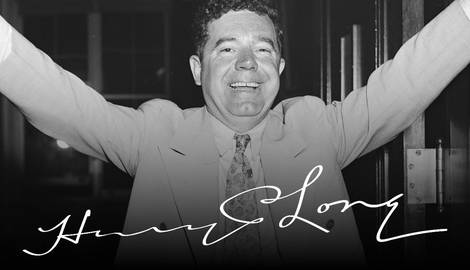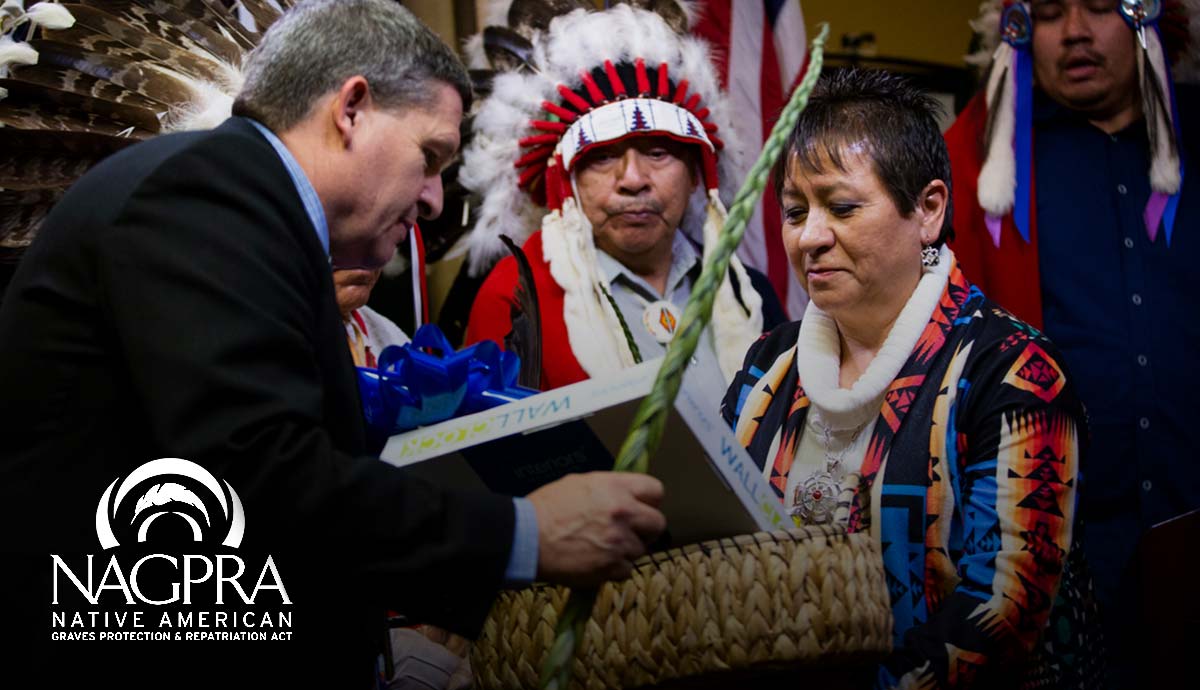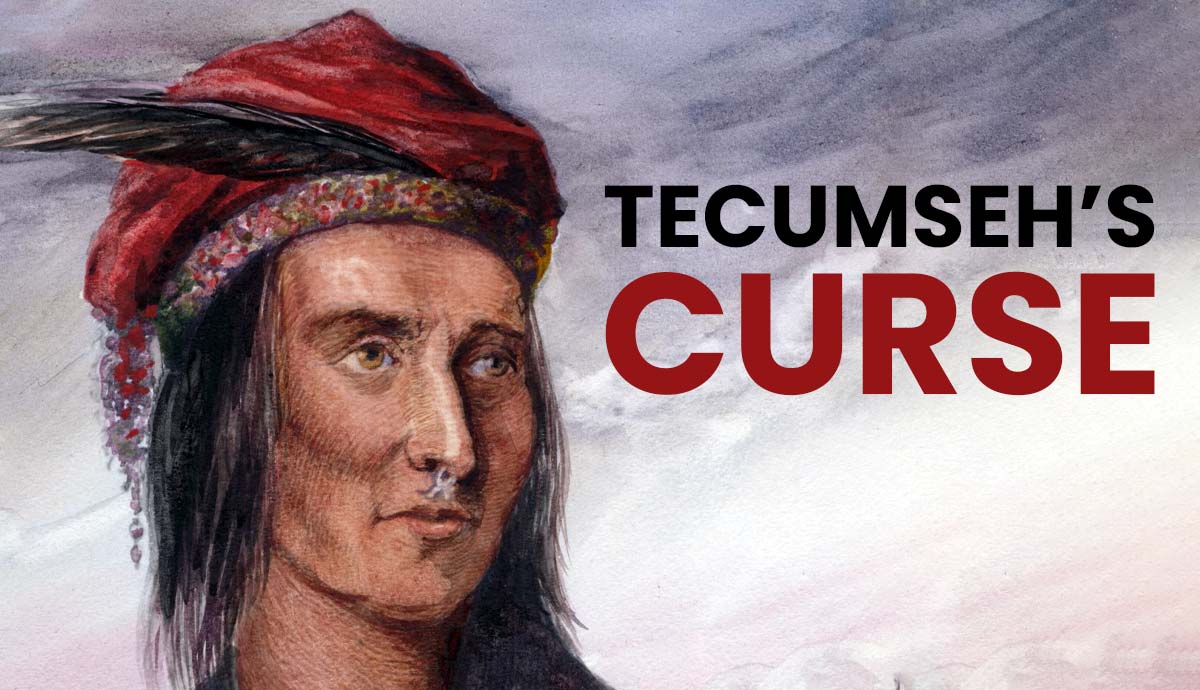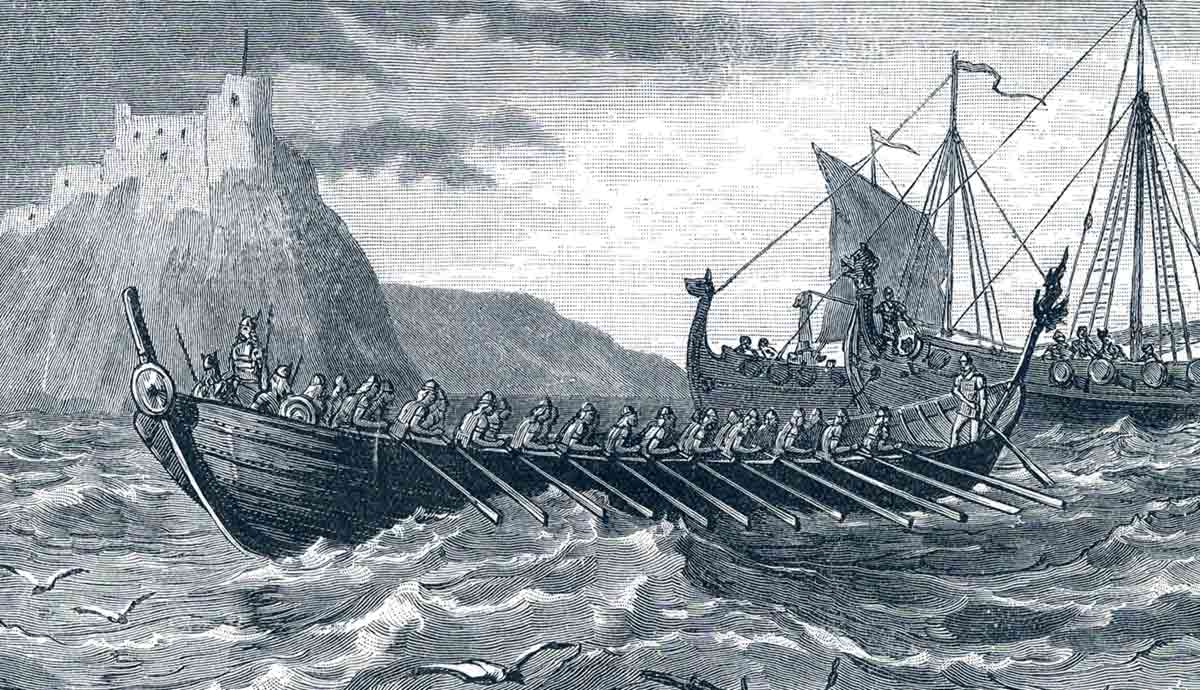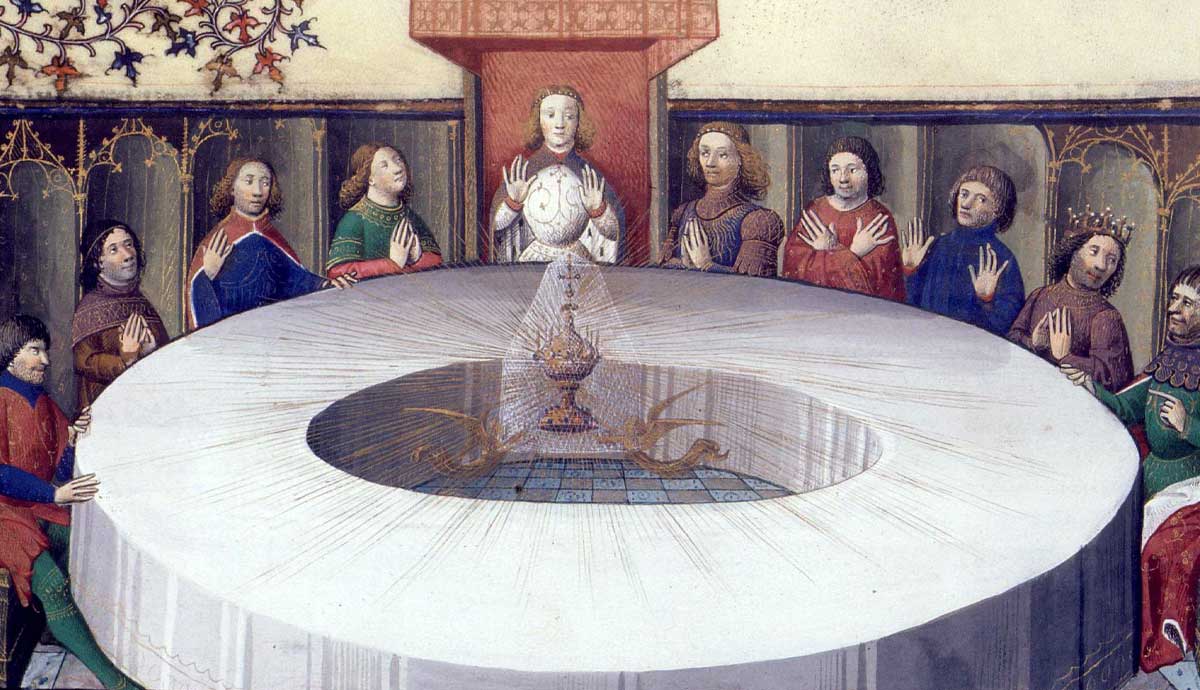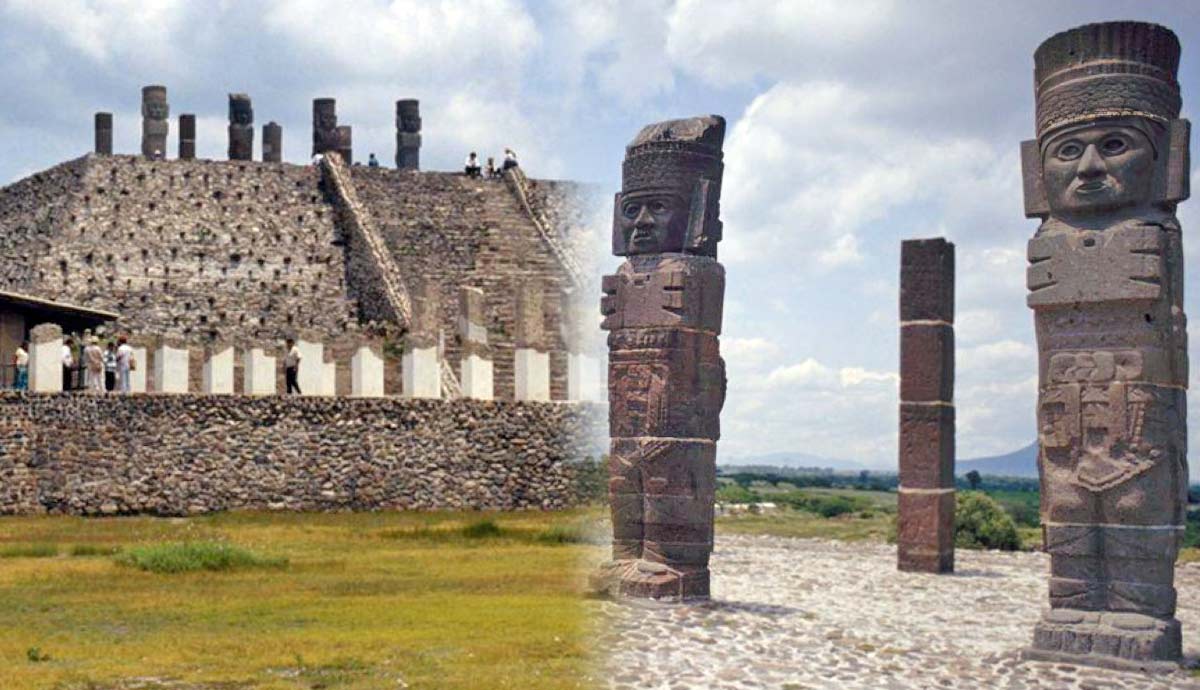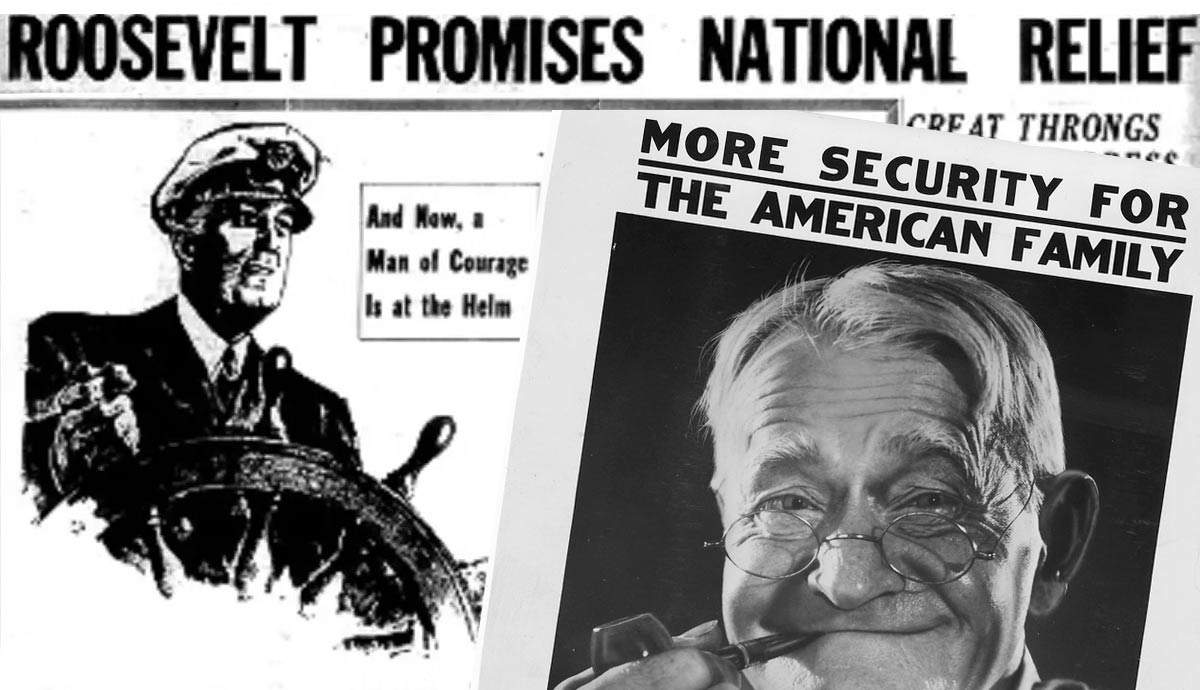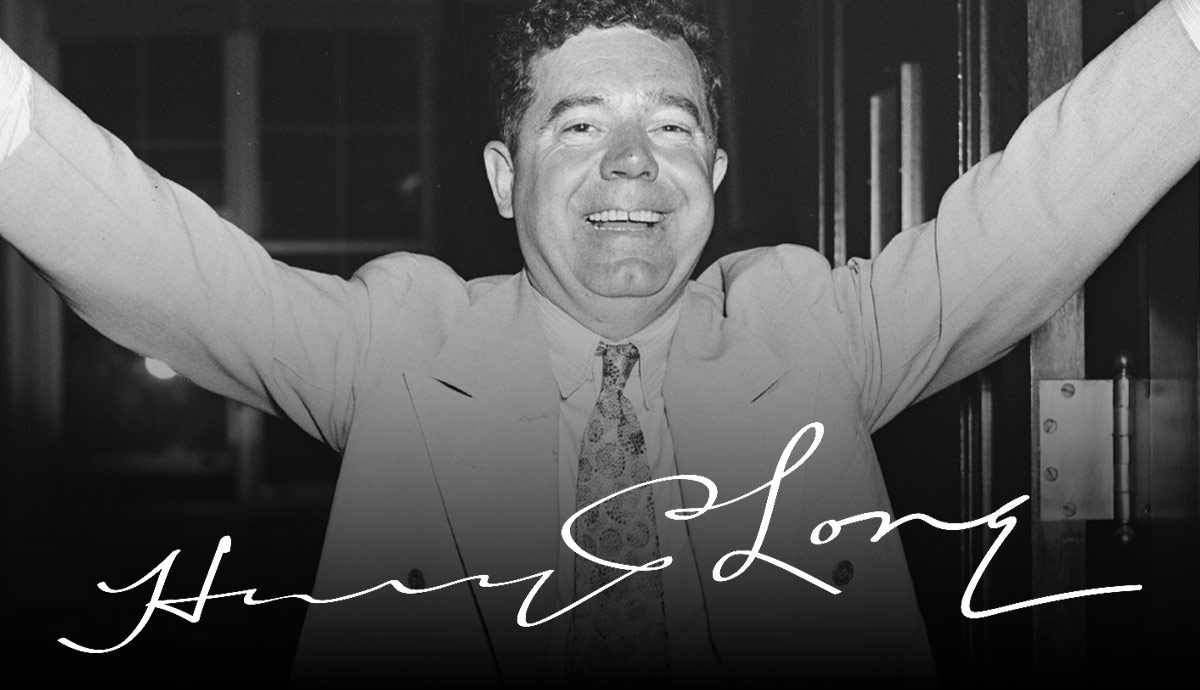
Political powerhouse Huey Long was a radical democrat who had no qualms about making his opinions known. Rising through political ranks in Louisiana, he began making an impact on the national stage. Long made a number of reforms during his tenure in government, many of which made him popular with the rural populace that struggled with poverty. Confident and dedicated, Long was a farm boy turned political master. Though Long’s occupancy in the US government would be cut short by an assassin’s bullet, his legacy and legend survived.
Long Earned a Law Degree in a Year

Huey Long did not start out well-educated in the traditional sense. In fact, he dropped out of high school. However, he was nothing less than brilliant, with a photographic memory to boot. Long was expelled from his high school after circulating a petition campaigning against the 12th year that had recently been added as a requirement to public education. Still, he already had a scholarship to Louisiana State University, which had been a prize from a state debate competition. However, he could not take advantage of his winnings, as he could not afford the school’s textbooks or room and board. He worked for a while, eventually deciding, with encouragement from his older brother Julius, to attend law school. With financial assistance from Julius, Long started at Tulane University Law School. After attending the school for only a year, Long obtained permission to take the state bar exam in 1915. He passed with flying colors and became an accredited lawyer at age 21 without a single diploma or degree to his name.
From Governor to Senator to… President?

Despite his skill as a lawyer, Long was soon drawn to the political sphere. His first political position was with the Louisiana Railroad Commission, beginning in 1918. He later became chair of the Public Service Commission and first ran for governor in 1924. He didn’t win, but was confident that he had what it took to try again. In 1928 he ran again, campaigning against “machine politicians” and the old government standards. His promises to the everyman and his excellent oration made him governor, as he won the election by the largest margin in state history.
When he faced blowback from opponents regarding some law-making efforts, Long decided to run for the US Senate. He won in 1930 and planned to resign his governorship. However, he left his senate seat vacant for nine months as he worked to find an appropriate replacement for his governor seat, fearing that the wrong candidate would reverse the progress and reforms he’d made in Louisiana. Eventually, his political ally Alvin King moved into the role of Lieutenant Governor, poised to take Long’s position, and Long left for Washington.

Long’s confidence extended to his aspirations, and he believed he had the potential to take on the highest office in the land. He saw himself winning the presidency in the 1936 campaign, even writing a novel called My First Days in the White House. Unfortunately, his presidential dreams were foiled by his untimely death in 1935.
Every Man a King, and One the Kingfish

Long ran his campaign for governor using a campaign slogan from the writings of William Jennings Bryan: “Every man a king.” Emphasizing the rights of people from all levels of wealth, this slogan would continue to be a mainstay of Long’s political career, including serving as the title and subject of radio addresses, songs, and speeches. Long hoped that every man, woman, and child would have easy access to the necessities of life, with a more level playing field rather than an unequal distribution of wealth. He often referenced the Declaration of Independence and its credence of certain unalienable rights for all people, as well as the idea that all men were created equal.

Tying into his “king” allusions, Long earned the nickname “The Kingfish,” which he embraced wholeheartedly. The name originated from a character in a popular radio show from the time, “Amos ‘n’ Andy.” Long elaborated on his moniker by explaining, “I’m a small fish in Washington, but I’m the ‘Kingfish’ to the folks down in Louisiana.”
Long Criticized the New Deal

Although Long had originally supported President Franklin Delano Roosevelt’s early campaigns, by 1935, he was finding reasons to criticize the President’s New Deal programs. Long found the programs enacted by the New Deal to be too conservative and wanted them to push further, leading to the development of his “Share Our Wealth” program. Roosevelt dismissed many of his critics, but not Long. Polls had revealed that Long was a threat to Roosevelt’s continuing presidency, as surveys indicated that he could pull millions of votes from the Democratic ticket.
He Wanted to Share the Wealth

Long’s “Share Our Wealth” was an extensive plan designed to completely redistribute the nation’s economic wealth in a way that would allow for more financial equality. Revealed via a radio address in 1934, the plan was for the federal government to provide each family with a total stipend of $5,000 annually. This figure would equal the same buying power as just over $119,000 in 2024. Long believed these funds would be necessary to provide Americans with the essentials they needed for a happy and healthy life, including a home, a radio, and a car.
In addition to providing these annual stipends to every American family, Long suggested other financial moves as part of his proposed programs. These included limiting private fortunes to fifty million dollars, reducing inheritances to no more than five million, and preventing annual incomes exceeding a million dollars. The program plans also included free higher education and job training and a shortened work week with more vacation time for employees.

Though Long believed the plan would boost his chances of achieving the presidency, critics were quick to deride his plan. It was considered socialist or communist, with some comparing him to “Marx, Lenin, and Trotsky.” Though Long argued that wealth disparity was the key reason for the Great Depression and that more equality would allow for economic improvement, economists criticized his plan. Government agencies were soon investigating Long. The president and other political powerhouses were convinced that Long’s personal finances were suspicious and didn’t align with his calls for action. However, the plan gained momentum with the general public, and his popularity grew rapidly. Still, with Long’s assassination the following year, the Share Our Wealth movement broke down and faded quickly.
Long Wrote an Autobiography at the Ripe Old Age of 39

While many influential figures choose to write their autobiographies in their twilight years, after they have completed many goals and accomplishments, Huey Long published his tome, Every Man a King, in 1933, when he was only 39 years of age. It would prove prophetic though, as Long would live only two more years. The book was written just after he assumed his senate seat and highlights his early career accomplishments in Louisiana.
He Was Assassinated, But There is Controversy

As an outspoken and often brash public figure, Huey Long naturally received many threats over his career, some even referencing his murder. As a result, he had a formidable personal security detail that included armed bodyguards. In July 1935, he announced that his team had uncovered an assassination plot that involved four Louisiana congressmen, two former governors, and a mayor. It wouldn’t be the only alleged plot against him.
On September 8th of that year, Huey was killed in the state capitol. He was leaving a session of the legislature, which included a bill that would push Judge Benjamin Pavy out of a job due to redistricting. Long’s alleged shooter was Dr. Carl Weiss, Judge Pavy’s son-in-law, who approached him in the hallway and, at close range, shot him in the abdomen. Weiss was instantly killed by Long’s bodyguards, but Long clung to life for two more days, passing away on September 10th, 1935. His final words were, “God, don’t let me die. I have so much to do.”

Following the death and continuing to the modern era, there has been speculation around the assassination. Some argue that instead of intending to assassinate the senator, Weiss had approached Long to discuss the issue of his father-in-law’s job. When the argument grew heated, a bodyguard drew his weapon at Weiss, but accidentally hit Long instead. Support for this theory has been issued by Weiss’ colleagues, who said that Weiss had discussed surgeries for the following day as if he planned to be at work. The final encounter was also the third time that Weiss had spoken to Long that night, so the question remains of why he would pass up the first two opportunities to kill his mark if that was his plan. No investigation followed the shooting, nor was an autopsy completed on Long, so there is little existing hard evidence to support the true story of the shooting, whatever it might be.
His Son Followed in His Footsteps

Huey Long and his wife, Rose, had three children: a daughter, also named Rose, and two sons, Russell and Palmer. Russell would also become a senator, like both of his parents (Rose briefly served after Huey’s assassination). Russell entered office in 1948 and was in the Senate for almost 40 years, choosing not to seek re-election in 1985. He was popular with constituents, and in 1885, he even met Carl Weiss’s son, Carl Weiss Jr, who had never met his father. Both shared that they harbored no ill will toward one another.
